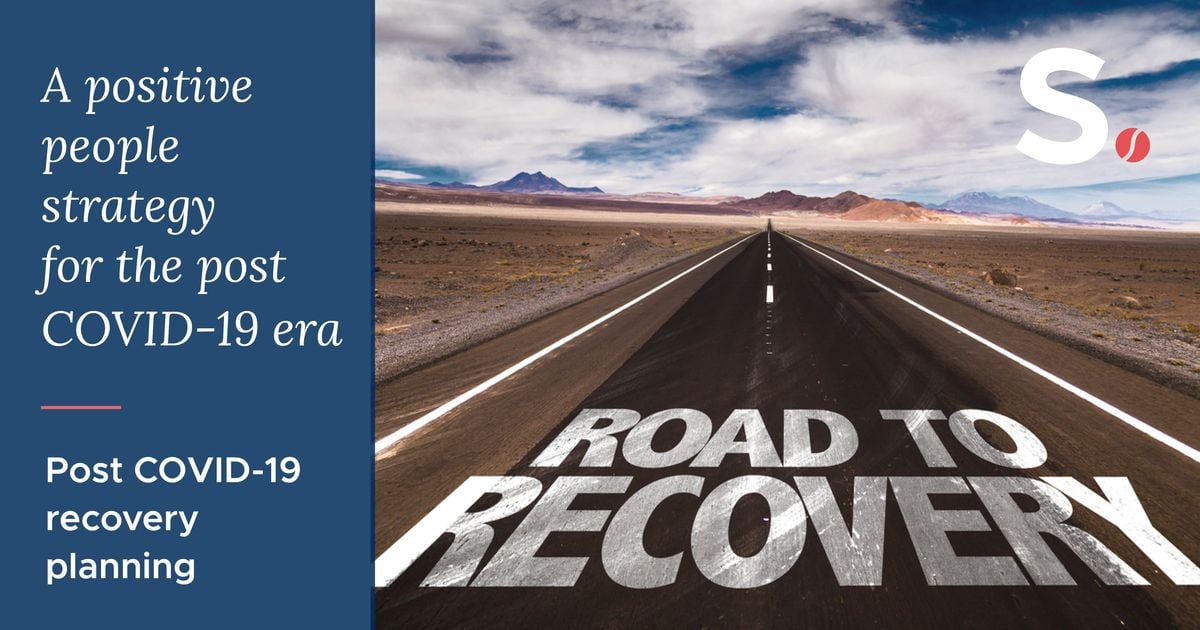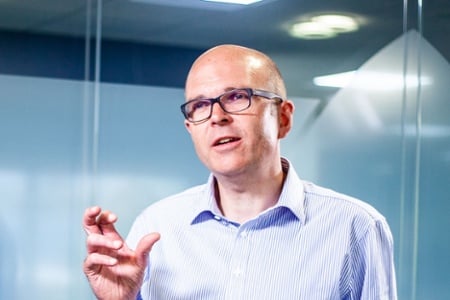
It is clear, that the most successful businesses are using the current lockdown to review their existing business strategy. Together with various business partners, we have put together a series of articles to cover some of the areas that entrepreneurs are thinking about right now. Hopefully, this will allow you to prepare to accelerate your own recovery, as and when the lockdown restrictions are loosened.
Firstly, we speak with Nik Pratap, of Pratap Partnership on how businesses can use this time to adopt a positive people strategy for the post Covid-19 era.
Nik explained -
"There is a feeling within the recruitment sector and the HR community that we are currently working during the ‘half-time break’. Everything that has preceded this point will now be defined as the pre-COVID-19 era. The future will be the second half and an establishment of the ‘new normal’.
Although it is a sad reality that the sole objective for many employers is immediate survival, many others are now looking to the future – planning how to position themselves and how to discover new opportunities. Re-defining the people element of your strategy is, at the very least, as critical as addressing the financial, sales, marketing & supply chain areas. Employees and directors have been through the biggest disruption to their employment in a generation (significantly more change than in the financial crisis of 2008) and the majority of employers have implemented more changes to their employer proposition in the past month than they have in the past 5 years. It is almost impossible to see that there will be a way back. The challenge is to see this as a huge opportunity to step forward.
Here are 5 of the biggest lessons that employers have learned during the pandemic crisis. It would be premature to suggest a formative list of suggested actions now, but there is plenty to consider."
"EXISTING LONG-TERM HR STRATEGIES
ARE NOW DEFUNCT"
"The sentiment of planning long term futures & opportunities for your workers is positive and laudable. The millennial generation have already been more sceptical of this in the pre-COVID-19 era. The crisis itself suggests that the notion that any business can predict their headcount strategy and structure for five years is absurd.
The qualities that have stood out within many valued employees over the lockdown have been innovation, imagination and adaptability. The working cultures and career routes of the future will reflect these values, will embrace agility and will adopt an almost just-in time approach to human resource planning.
The early stages of the post-COVID-19 era will see many employers engage new staff on interim and fixed-term contracts, capitalising on the good supply and the postponement of the IR35 changes, which were one of the first measures that the government announced to help the employment sector on March 17th"
“THE REAL BEGINNING OF
AGILE WORKING”
"Technology already exists for driverless cars. The main reason our roads are not full of them is that people themselves are not ready. Technology has existed for remote working for years. The main reason we have all started doing it now is because there has been a global pandemic.
There are so many reasons why it has taken an international event to trigger this change for roles that can be set up to work remotely – existing office infrastructures, cultures and management attitudes to name some of the often cited. The past few weeks have seen laptop sales in the UK grow by almost 50%, rollout of Office365 & TEAMS, hundreds of home offices created and……. a good number of employees embrace it, enjoy it and continue to be effective. Not every employee has missed the rush hour on the Sheffield Parkway, costs of travel and city centre lunches. “Forcing” teams to go back to this modus operandi in the future does not sound like a tick in the box for positive employee engagement and productivity."
“SIGNIFICANT CHANGES TO
EXPECTATIONS OF BUSINESS LEADERS”
"Crises create the biggest challenges for leaders. Much has been written during the crisis about how to look after employees and how to communicate with them. Nobody can argue with the increased importance of this during the crisis, but people-management and communication skills should be second nature to business leaders.
For those leaders and managers who have struggled with these areas during the crisis, there may be no route back to their hiding places when the lockdown is over and the furloughed staff return to work. The first stage of the post-COVID-19 period will provide many challenges for businesses and employees. Employers with leaders who can motivate, inspire, engage and develop their teams will hit fifth gear before those who are without."
“EVERY BUSINESS WILL NEED TO ADDRESS THEIR
EMPLOYER VALUE PROPOSITION.
SOME WILL NEED A FEW AMENDS WHILE OTHERS
WILL NEED RE-WRITING ENTIRELY”
"A number of the headline forces in the recruitment sector will be changed in the post-COVID-19 era;
-
The UK has had the highest levels of employment since records began. This will change in the immediate future with some (not all) skills with a stronger supply
-
Employees will look at their current employer with a new perspective. How have they been looked after during the crisis compared to their peers at competitors? How well have the company values stood up to the test of the crisis?
-
Candidates will be looking at a broader range of factors to influence their decision to consider a move to a new employer. How have the current employees judged the business and the leaders during the crisis and have they posted their thoughts on Glassdoor? What is the flexible working culture and infrastructure?
-
How can employers engage and motivate their people when existing business plan and goals are being addressed?"
“MAKE SURE YOU HAVE A STRONG PLAN
FOR THE START OF
THE POST-COVID-19 ERA”
"Most employers implemented huge changes for their people in a matter of days to manage the crisis at the outset. These need employers to make sure that their plans for the post-COVID-19 era are even more effective.
-
Welcome your people back with a plan that is structured even better than the plans that you had for them during the crisis. Make ‘The Grand Return’ to work a positive experience that makes the people feel valued, secure and with something to look forward to. Most of all, make sure that they have the opportunity to be listened to. Safety and financial security will be more prominent factors for many employees – even to the extent that many will not feel comfortable returning to the offices as soon as lockdown is over. Employers have a unique opportunity to create an impact with some more targeted benefits and initiatives that will be embraced by their people.
-
Make an immediate note of all of the positive learns from the lockdown and ensure that these lessons do not get lost in a return to old ways. Remote working, on-line training platforms and new skills learned by your people during the ‘all hands-to-the-pump’ situation for a few weeks. It may not be a priority to have an immediate plan to ensure some continuity of these things but make sure they are not lost.
-
Perform a skills audit on your team. How do these skills match and support the new demands of the business? This will result in a large number of restructurings, with some downsizing and others bringing in new talent with different skills."
A big thank you to Nik Pratap for your above thoughts and for taking part in our series of Post Covid-19 Recovery Planning blogs. Please follow the link below to arrange your free post Covid-19 Recovery Planning consultation with one of our team.
Other related articles:
- Standing alongside our clients through Covid-19
- What successful entrepreneurs are doing right now
- Pratap Partnership website

Andy Irvine
Andy looks after many of our larger corporate clients for whom he closely monitors their accounting and taxation requirements. Drawing on extensive experience gained from working for a ‘Big 4’ firm, Andy is ideally placed to manage and supervise larger assignments. As a Chartered Tax Adviser he actively identifies tax planning opportunities for clients and has considerable experience in leading due diligence assignments. As a member of the Association of Independent Medical Accountants (AISMA), Andy is well qualified to deal with the accounting, finance, taxation, practice management and pension issues affecting doctors today.
View my articlesTags: Covid-19

